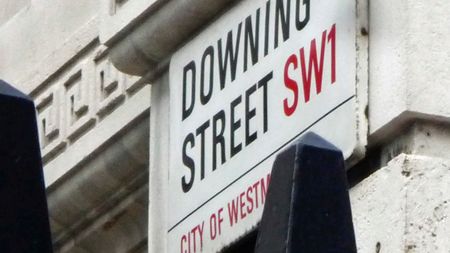
Press release -
Northumbria and Durham academics reveal imbalance of power in North East
Who runs the North? This may sound like a question from the latest episode of Game of Thrones, but Professor Keith Shaw and Sue Regan from Northumbria University, working with Professor Fred Robinson at Durham University, have been asking just that.
The academics recently unveiled a major study of governance in the North East of England, which reveals a worrying imbalance of power. The researchers looked at the North East’s political structures including the councils, bodies and boards running key public services and found they are run by a narrow range of people, many of whom are not elected.
In total, the academics surveyed 100 organisations in local government, health, education, arts and culture and housing. The main findings of this research, which was funded by the Joseph Rowntree Charitable Trust, have just been published and can be read in full here.
Professor Shaw said: “This unrivalled analysis of power and accountability shows that the North East’s public services are run by a narrow range of people – largely middle aged, middle class people who are not representative of the region’s population. The majority of those in charge are men, but women are more involved than they used to be.”
Key findings from the report are:
- The North East today has very little power. Most of the region’s MPs (26 out of 29) are in Opposition — and London is more dominant than ever. The former regional institutions have been abolished and — despite the rhetoric — there’s been little devolution of power to the regional or sub-regional level.
- Local government has been weakened by austerity and that is on top of a continuing problem of low election turnouts.
- Many public services are run by people who are appointed – they can’t be voted out, so there is little democratic input.
- There’s been a big increase in the involvement of women in governance. Now, 14 of the region’s 29 MPs are women, compared with 4 women out of 30 MPs in 2000. It’s the same on Councils: 43% of North East Councillors are women, compared with 23% in 2000. However, most senior positions are still held by men.
- Many appointed boards still have male majorities, but the dominance of men has been steadily reducing. Even so, boards where the majority of members are female are very rare indeed.
- In other respects, the people who run the North East are far from representative of the population. Very few are under the age of 45; very few are from Black, Asian or Minority Ethnic (BAME) backgrounds; and few are disabled. Most have professional backgrounds. There are far more accountants appointed to boards than people from BAME backgrounds. Seven of the 12 Councils have no BAME councillors. No less remarkably, hardly anyone running the region’s NHS organisations is disabled.
Professor Shaw added: “The report says that many voices are unheard and many points of view are effectively unrepresented. Big decisions about health and education have little or no input from many of the people who use these services.
“There may not be much that the North East can do to counter the dominance of London, but organisations in the region could do much more to be representative and accountable. They need to be far more open about what they do; some of their websites, for example, certainly do not give the impression of transparency and openness. Boards should hold meetings in public and publish minutes of meetings, as a matter of principle and good practice. They should be thinking much more seriously about diversity in their governance and how to foster it; vague policies are not enough.
“This research provides the facts and figures that can be used to challenge and change existing practices. Public services need to be much more open and accountable, so that they are more responsive to local communities.”
Northumbria offers a range of courses in Social Sciences, including Criminology, Sociology, International Relations International Development, Media, Journalism and Mass Communications. To find out about studying at Northumbria come along to one of our upcoming Open Days by clicking here.
Topics
Northumbria is a research-rich, business-focused, professional university with a global reputation for academic excellence. To find out more about our courses go to www.northumbria.ac.uk
If you have a media enquiry please contact our Media and Communications team at media.communications@northumbria.ac.uk or call 0191 227 4604.










